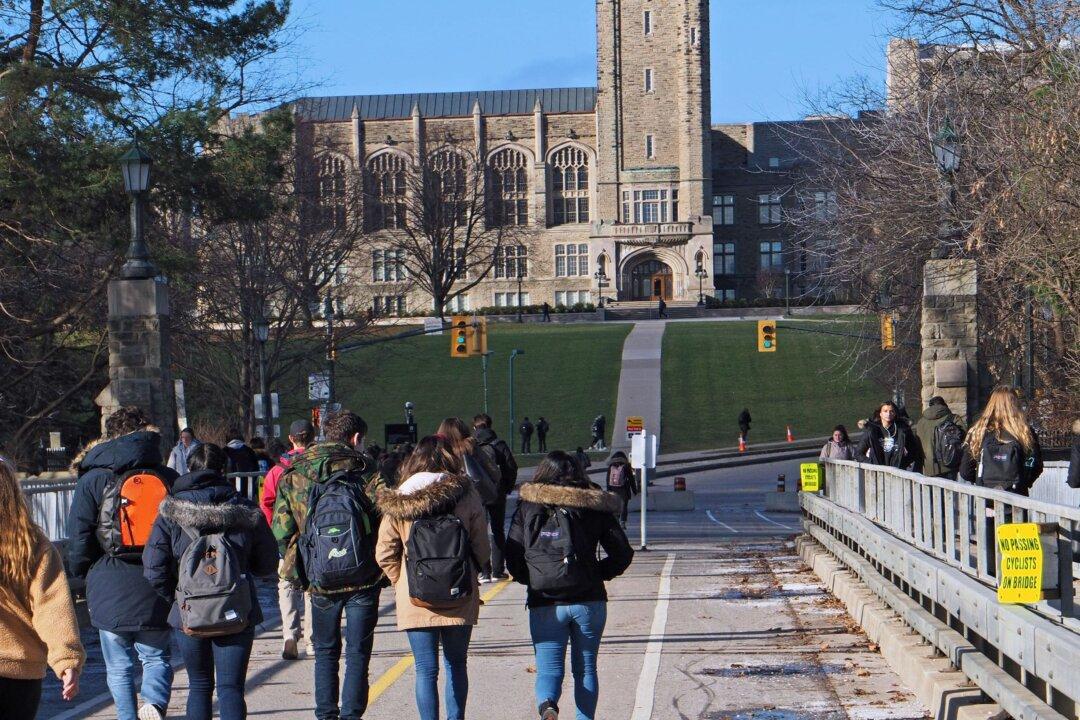Three in five Canadian university students say they fear expressing their honest views on contentious political issues due to potential backlash from peers and instructors, a campus free speech survey says.
Participants in a survey of 1,548 university and college students were asked if they felt comfortable discussing “controversial issues” in the classroom, such as the Israeli-Palestinian conflict, transgender issues, and other politically charged subjects.





